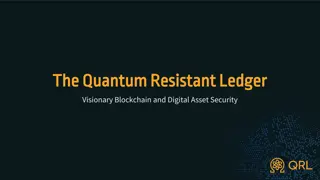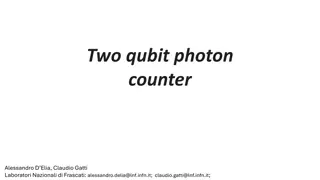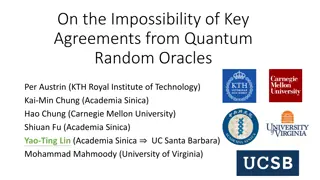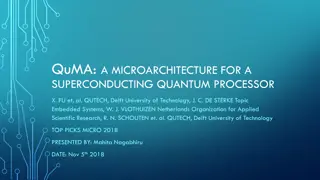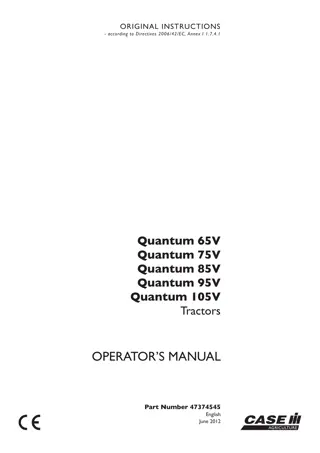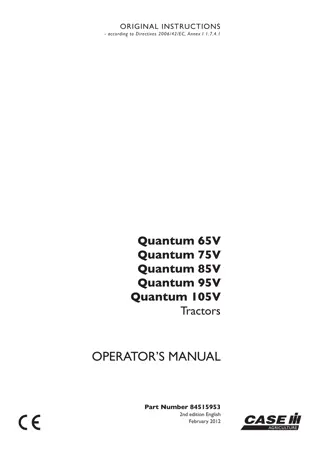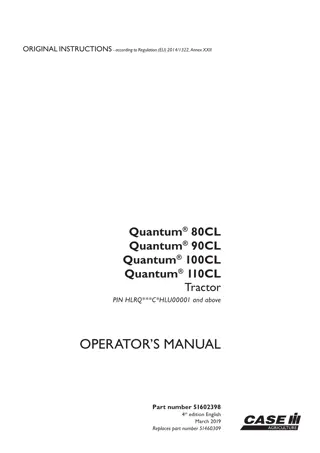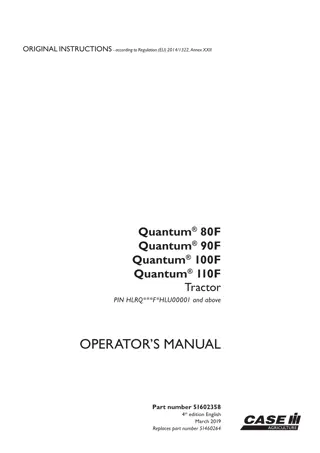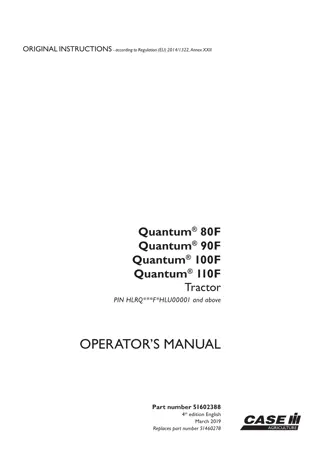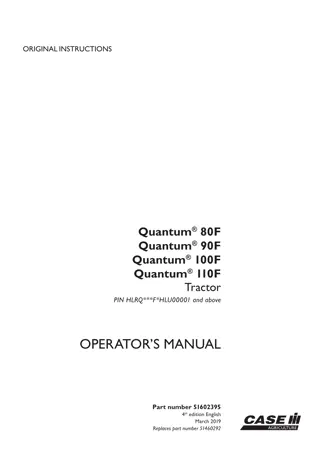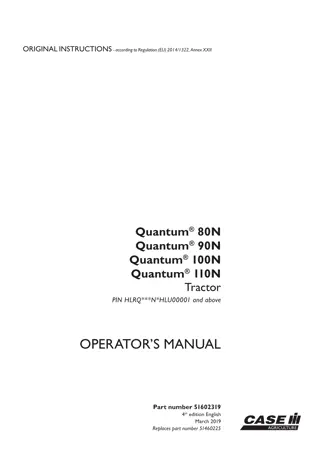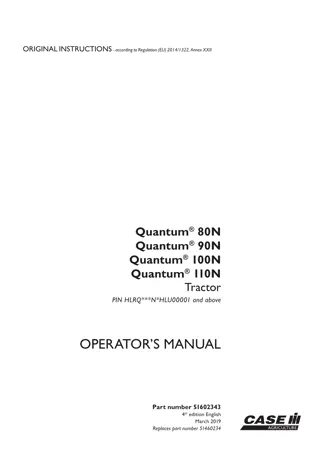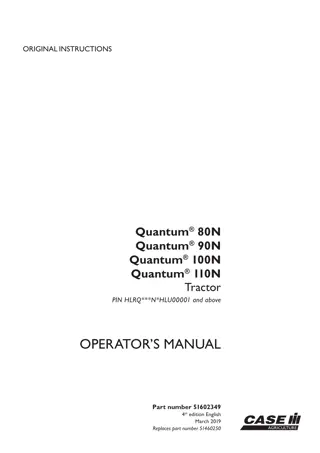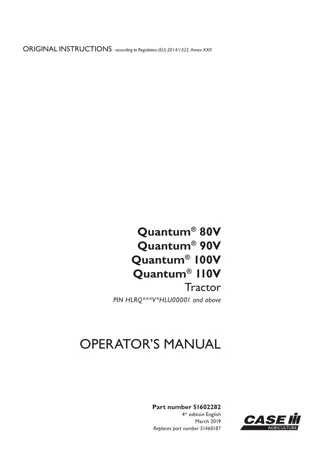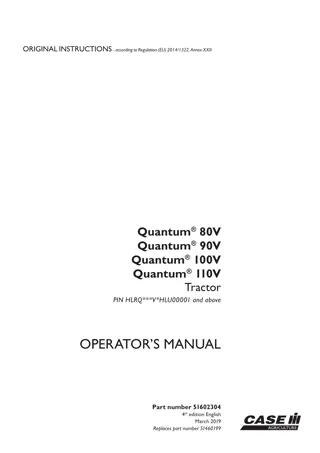Addressing The Quantum Threat: The Quantum Resistant Ledger
The Quantum Resistant Ledger (QRL) is a visionary blockchain and digital asset security solution designed to counter the emerging threat of quantum computing. With quantum technology advancing and traditional blockchains at risk, QRL offers an industrial-grade, quantum computer-resistant cryptocurre
3 views • 9 slides
Quantum Circuit Simulations and Electromagnetic Analyses in Quantum Photonics
Explore the world of quantum photonics with insights into two-qubit photon counters, jointed cavities, qubit pads, and quantum circuit simulations. Ansys simulations and experimental data by researchers Alessandro D'Elia and Claudio Gatti provide in-depth analysis of quantum phenomena. Discover the
0 views • 7 slides
Quantum Key Agreements and Random Oracles
This academic paper explores the impossibility of achieving key agreements using quantum random oracles, discussing the challenges and limitations in quantum communication, cryptographic protocols, quantum computation, and classical communication. The study delves into the implications of quantum ra
0 views • 29 slides
Overview of QuMA: A Microarchitecture for a Superconducting Quantum Processor
This paper introduces QuMA, a quantum microarchitecture that bridges the gap between high-level algorithms and the quantum physical layer. It defines a multi-layered system stack for quantum computers, focusing on compiler support, quantum error correction, and the need for a micro-architecture fram
1 views • 21 slides
Case IH Quantum 65C Quantum 75C Quantum 85C Quantum 95C Tractors Operator’s Manual Instant Download (Publication No.47394642)
Case IH Quantum 65C Quantum 75C Quantum 85C Quantum 95C Tractors Operator\u2019s Manual Instant Download (Publication No.47394642)
0 views • 22 slides
Case IH Quantum 65C Quantum 75C Quantum 85C Quantum 95C Tractors Operator’s Manual Instant Download (Publication No.84131288)
Case IH Quantum 65C Quantum 75C Quantum 85C Quantum 95C Tractors Operator\u2019s Manual Instant Download (Publication No.84131288)
0 views • 20 slides
Case IH Quantum 65C Quantum 75C Quantum 85C Quantum 95C Tractors Operator’s Manual Instant Download (Publication No.84267386)
Case IH Quantum 65C Quantum 75C Quantum 85C Quantum 95C Tractors Operator\u2019s Manual Instant Download (Publication No.84267386)
0 views • 22 slides
Case IH Quantum 65C Quantum 75C Quantum 85C Quantum 95C Tractors Operator’s Manual Instant Download (Publication No.84576257)
Case IH Quantum 65C Quantum 75C Quantum 85C Quantum 95C Tractors Operator\u2019s Manual Instant Download (Publication No.84576257)
0 views • 22 slides
Case IH Quantum 65V Quantum 75V Quantum 85V Quantum 95V Quantum 105V Tractor Operator’s Manual Instant Download (Publication No.48077078)
Case IH Quantum 65V Quantum 75V Quantum 85V Quantum 95V Quantum 105V Tractor Operator\u2019s Manual Instant Download (Publication No.48077078)
0 views • 22 slides
Case IH Quantum 65V Quantum 75V Quantum 85V Quantum 95V Quantum 105V Tractors Operator’s Manual Instant Download (Publication No.47374545)
Case IH Quantum 65V Quantum 75V Quantum 85V Quantum 95V Quantum 105V Tractors Operator\u2019s Manual Instant Download (Publication No.47374545)
0 views • 22 slides
Case IH Quantum 65V Quantum 75V Quantum 85V Quantum 95V Quantum 105V Tractors Operator’s Manual Instant Download (Publication No.84515953)
Case IH Quantum 65V Quantum 75V Quantum 85V Quantum 95V Quantum 105V Tractors Operator\u2019s Manual Instant Download (Publication No.84515953)
0 views • 21 slides
Case IH Quantum 65V Quantum 75VN Quantum 85VN Quantum 95VN Tractors Operator’s Manual Instant Download (Publication No.47374455)
Case IH Quantum 65V Quantum 75VN Quantum 85VN Quantum 95VN Tractors Operator\u2019s Manual Instant Download (Publication No.47374455)
0 views • 22 slides
Case IH Quantum 75F Quantum 85F Quantum 95F Quantum 105F Tractor Operator’s Manual Instant Download (Publication No.48077089)
Case IH Quantum 75F Quantum 85F Quantum 95F Quantum 105F Tractor Operator\u2019s Manual Instant Download (Publication No.48077089)
0 views • 22 slides
Case IH Quantum 75F Quantum 85F Quantum 95F Quantum 105F Tractors Operator’s Manual Instant Download (Publication No.84515964)
Case IH Quantum 75F Quantum 85F Quantum 95F Quantum 105F Tractors Operator\u2019s Manual Instant Download (Publication No.84515964)
0 views • 22 slides
Case IH Quantum 75N Quantum 85N Quantum 95N Quantum 105N Tractor Operator’s Manual Instant Download (Publication No.48077102)
Case IH Quantum 75N Quantum 85N Quantum 95N Quantum 105N Tractor Operator\u2019s Manual Instant Download (Publication No.48077102)
0 views • 22 slides
Case IH Quantum 75N Quantum 85N Quantum 95N Quantum 105N Tractors Operator’s Manual Instant Download (Publication No.47374513)
Case IH Quantum 75N Quantum 85N Quantum 95N Quantum 105N Tractors Operator\u2019s Manual Instant Download (Publication No.47374513)
0 views • 22 slides
Case IH Quantum 75N Quantum 85N Quantum 95N Quantum 105N Tractors Operator’s Manual Instant Download (Publication No.84593516)
Case IH Quantum 75N Quantum 85N Quantum 95N Quantum 105N Tractors Operator\u2019s Manual Instant Download (Publication No.84593516)
0 views • 22 slides
Case IH Quantum 80CL Quantum 90CL Quantum 100CL Quantum 110CL Tractor (Pin.HLRQCHLU00001 and above) Operator’s Manual Instant Download (Publication No.48162724)
Case IH Quantum 80CL Quantum 90CL Quantum 100CL Quantum 110CL Tractor (Pin.HLRQCHLU00001 and above) Operator\u2019s Manual Instant Download (Publication No.48162724)
0 views • 22 slides
Case IH Quantum 80CL Quantum 90CL Quantum 100CL Quantum 110CL Tractor (Pin.HLRQCHLU00001 and above) Operator’s Manual Instant Download (Publication No.51602398)
Case IH Quantum 80CL Quantum 90CL Quantum 100CL Quantum 110CL Tractor (Pin.HLRQCHLU00001 and above) Operator\u2019s Manual Instant Download (Publication No.51602398)
0 views • 22 slides
Case IH Quantum 80CL Quantum 90CL Quantum 100CL Quantum 110CL Tractor Operator’s Manual Instant Download (Publication No.47981718)
Case IH Quantum 80CL Quantum 90CL Quantum 100CL Quantum 110CL Tractor Operator\u2019s Manual Instant Download (Publication No.47981718)
0 views • 22 slides
Case IH Quantum 80F Quantum 90F Quantum 100F Quantum 110F Tractor (Pin.HLRQFHLU00001 and above) Operator’s Manual Instant Download (Publication No.51602358)
Case IH Quantum 80F Quantum 90F Quantum 100F Quantum 110F Tractor (Pin.HLRQFHLU00001 and above) Operator\u2019s Manual Instant Download (Publication No.51602358)
0 views • 22 slides
Case IH Quantum 80F Quantum 90F Quantum 100F Quantum 110F Tractor (Pin.HLRQFHLU00001 and above) Operator’s Manual Instant Download (Publication No.51602388)
Case IH Quantum 80F Quantum 90F Quantum 100F Quantum 110F Tractor (Pin.HLRQFHLU00001 and above) Operator\u2019s Manual Instant Download (Publication No.51602388)
0 views • 22 slides
Case IH Quantum 80F Quantum 90F Quantum 100F Quantum 110F Tractor (Pin.HLRQFHLU00001 and above) Operator’s Manual Instant Download (Publication No.51602395)
Case IH Quantum 80F Quantum 90F Quantum 100F Quantum 110F Tractor (Pin.HLRQFHLU00001 and above) Operator\u2019s Manual Instant Download (Publication No.51602395)
0 views • 22 slides
Case IH QUANTUM 80F QUANTUM 90F QUANTUM 100F QUANTUM 110F Tractor Operator’s Manual Instant Download (Publication No.47847699)
Case IH QUANTUM 80F QUANTUM 90F QUANTUM 100F QUANTUM 110F Tractor Operator\u2019s Manual Instant Download (Publication No.47847699)
0 views • 22 slides
Case IH QUANTUM 80F QUANTUM 90F QUANTUM 100F QUANTUM 110F Tractor Operator’s Manual Instant Download (Publication No.47847709)
Case IH QUANTUM 80F QUANTUM 90F QUANTUM 100F QUANTUM 110F Tractor Operator\u2019s Manual Instant Download (Publication No.47847709)
0 views • 22 slides
Case IH Quantum 80F Quantum 90F Quantum 100F Quantum 110F Tractor Operator’s Manual Instant Download (Publication No.48132361)
Case IH Quantum 80F Quantum 90F Quantum 100F Quantum 110F Tractor Operator\u2019s Manual Instant Download (Publication No.48132361)
0 views • 22 slides
Case IH Quantum 80F Quantum 90F Quantum 100F Quantum 110F Tractor Operator’s Manual Instant Download (Publication No.48132399)
Case IH Quantum 80F Quantum 90F Quantum 100F Quantum 110F Tractor Operator\u2019s Manual Instant Download (Publication No.48132399)
0 views • 22 slides
Case IH Quantum 80F Quantum 90F Quantum 100F Quantum 110F Tractor Operator’s Manual Instant Download (Publication No.48154189)
Case IH Quantum 80F Quantum 90F Quantum 100F Quantum 110F Tractor Operator\u2019s Manual Instant Download (Publication No.48154189)
0 views • 22 slides
Case IH Quantum 80N Quantum 90N Quantum 100N Quantum 110N Tractor (Pin.HLRQNHLU00001 and above) Operator’s Manual Instant Download (Publication No.51602319)
Case IH Quantum 80N Quantum 90N Quantum 100N Quantum 110N Tractor (Pin.HLRQNHLU00001 and above) Operator\u2019s Manual Instant Download (Publication No.51602319)
0 views • 22 slides
Case IH Quantum 80N Quantum 90N Quantum 100N Quantum 110N Tractor (Pin.HLRQNHLU00001 and above) Operator’s Manual Instant Download (Publication No.51602343)
Case IH Quantum 80N Quantum 90N Quantum 100N Quantum 110N Tractor (Pin.HLRQNHLU00001 and above) Operator\u2019s Manual Instant Download (Publication No.51602343)
0 views • 21 slides
Case IH Quantum 80N Quantum 90N Quantum 100N Quantum 110N Tractor (Pin.HLRQNHLU00001 and above) Operator’s Manual Instant Download (Publication No.51602349)
Case IH Quantum 80N Quantum 90N Quantum 100N Quantum 110N Tractor (Pin.HLRQNHLU00001 and above) Operator\u2019s Manual Instant Download (Publication No.51602349)
0 views • 22 slides
Case IH QUANTUM 80N QUANTUM 90N QUANTUM 100N QUANTUM 110N Tractor Operator’s Manual Instant Download (Publication No.47847660)
Case IH QUANTUM 80N QUANTUM 90N QUANTUM 100N QUANTUM 110N Tractor Operator\u2019s Manual Instant Download (Publication No.47847660)
0 views • 22 slides
Case IH QUANTUM 80N QUANTUM 90N QUANTUM 100N QUANTUM 110N Tractor Operator’s Manual Instant Download (Publication No.47847674)
Case IH QUANTUM 80N QUANTUM 90N QUANTUM 100N QUANTUM 110N Tractor Operator\u2019s Manual Instant Download (Publication No.47847674)
0 views • 22 slides
Case IH Quantum 80N Quantum 90N Quantum 100N Quantum 110N Tractor Operator’s Manual Instant Download (Publication No.48132332)
Case IH Quantum 80N Quantum 90N Quantum 100N Quantum 110N Tractor Operator\u2019s Manual Instant Download (Publication No.48132332)
0 views • 22 slides
Case IH Quantum 80N Quantum 90N Quantum 100N Quantum 110N Tractor Operator’s Manual Instant Download (Publication No.48132395)
Case IH Quantum 80N Quantum 90N Quantum 100N Quantum 110N Tractor Operator\u2019s Manual Instant Download (Publication No.48132395)
0 views • 22 slides
Case IH Quantum 80N Quantum 90N Quantum 100N Quantum 110N Tractor Operator’s Manual Instant Download (Publication No.48154188)
Case IH Quantum 80N Quantum 90N Quantum 100N Quantum 110N Tractor Operator\u2019s Manual Instant Download (Publication No.48154188)
0 views • 22 slides
Case IH Quantum 80V Quantum 90V Quantum 100V Quantum 110V Tractor (Pin.HLRQVHLU00001 and above) Operator’s Manual Instant Download (Publication No.51602282)
Case IH Quantum 80V Quantum 90V Quantum 100V Quantum 110V Tractor (Pin.HLRQVHLU00001 and above) Operator\u2019s Manual Instant Download (Publication No.51602282)
0 views • 22 slides
Case IH Quantum 80V Quantum 90V Quantum 100V Quantum 110V Tractor (Pin.HLRQVHLU00001 and above) Operator’s Manual Instant Download (Publication No.51602304)
Case IH Quantum 80V Quantum 90V Quantum 100V Quantum 110V Tractor (Pin.HLRQVHLU00001 and above) Operator\u2019s Manual Instant Download (Publication No.51602304)
0 views • 21 slides
Case IH QUANTUM 80V QUANTUM 90V QUANTUM 100V QUANTUM 110V Tractor Operator’s Manual Instant Download (Publication No.47847616)
Case IH QUANTUM 80V QUANTUM 90V QUANTUM 100V QUANTUM 110V Tractor Operator\u2019s Manual Instant Download (Publication No.47847616)
0 views • 22 slides
Case IH QUANTUM 80V QUANTUM 90V QUANTUM 100V QUANTUM 110V Tractor Operator’s Manual Instant Download (Publication No.47847627)
Case IH QUANTUM 80V QUANTUM 90V QUANTUM 100V QUANTUM 110V Tractor Operator\u2019s Manual Instant Download (Publication No.47847627)
0 views • 22 slides
